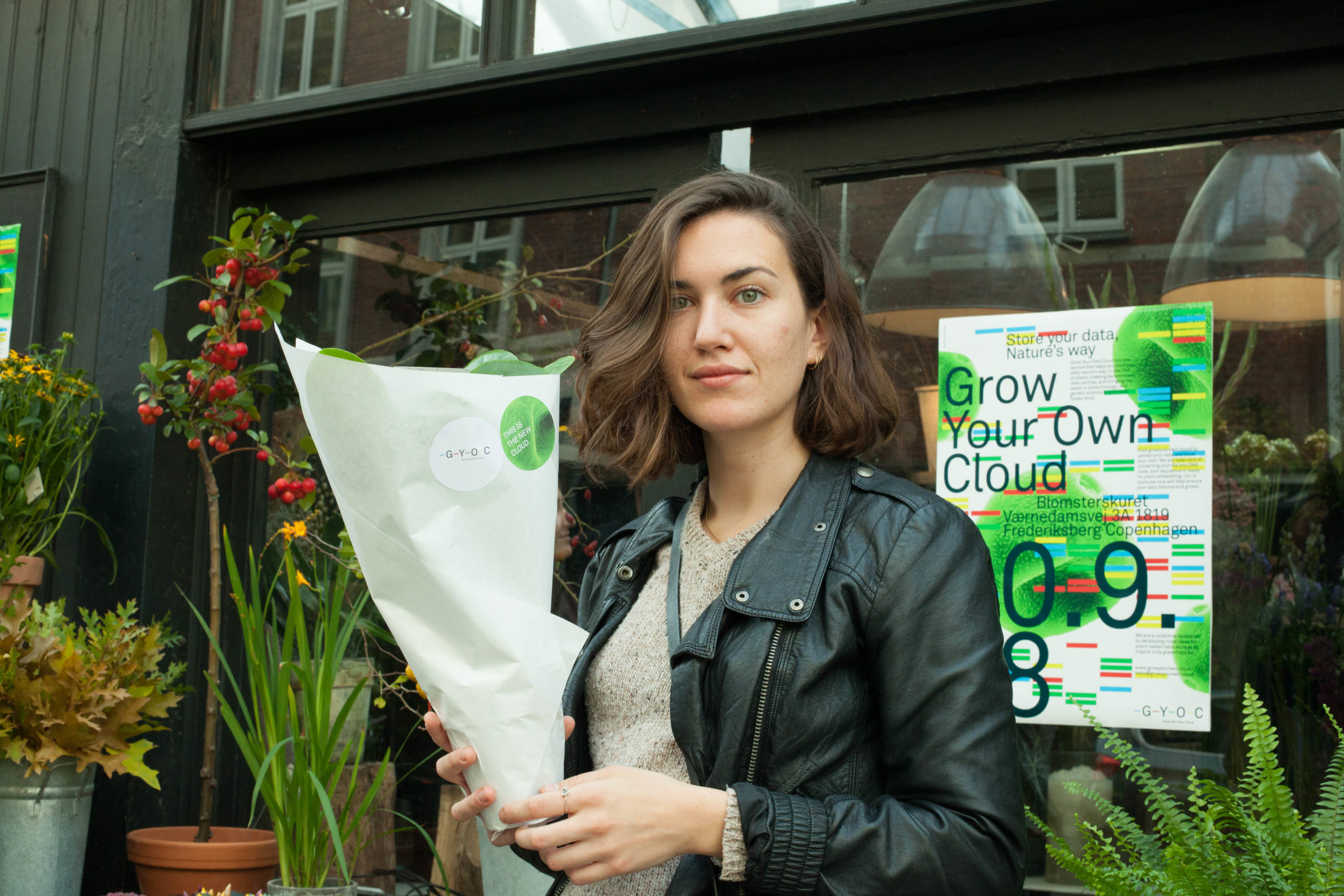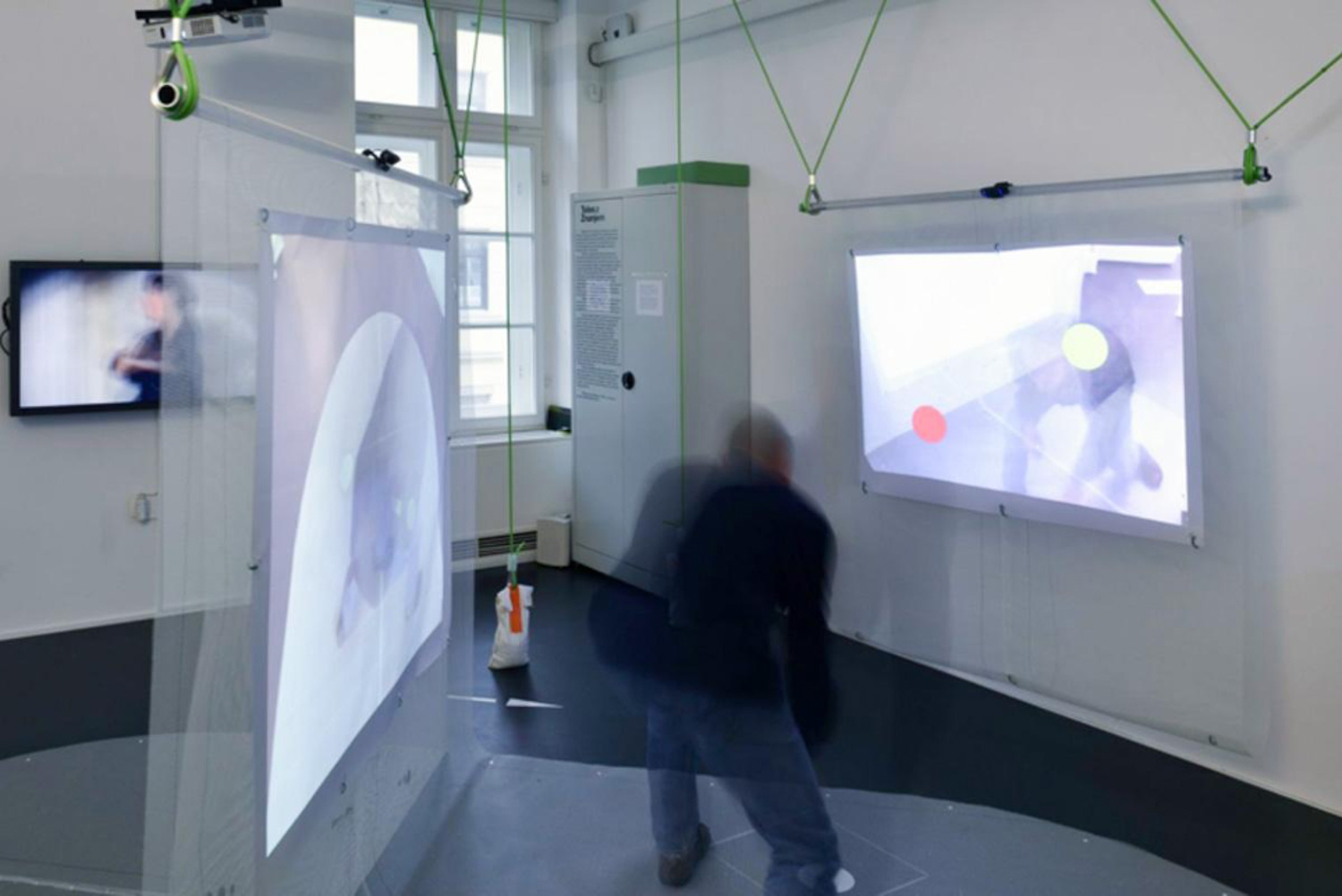Ginkgo.Your Innovation Partner.
Spearheaded and curated by Ginkgo Bioworks and design agency Faber Futures, the Ginkgo Creative Residency provides an experimental platform for creative thinkers to explore experimentally at the intersection of design and biology. This year in our third open call, we asked designers to think critically about skin as a biological interface. Following the review of applications from 14 countries across 5 continents, we are thrilled to welcome Monika Seyfried and Cyrus Clarke as Ginkgo’s 2020 Creative Residents! During their three month residency at Ginkgo, Monika and Cyrus will develop novel approaches for data interactions through skin, building upon their experiential work in DNA data encoding and decoding.

Monika Seyfried and Cyrus Clarke, hailing from Poland and the UK, are interaction and experience designers with backgrounds in art, design and economics. Since 2017 they have collaborated in their practice as a duo to explore alternative relationships with nature and technology and create interactive and immersive experiences that tell stories about possible futures. Their methods blend the fictional and real, using speculative design to research, interrogate, and widen imaginations, whilst grounding themselves in technical realities alongside scientists.
One of Monika and Cyrus’ ongoing research initiatives is Grow Your Own Cloud, which began as a speculative exploration of DNA data storage methods. The project centers around drawing attention to the link between data storage and rising CO2 emissions, allowing people to explore a world in which data storage is truly green. In 2018, collaborating with the University of Copenhagen Plants Genetics Lab, Monika and Cyrus developed the Data Flower-Shop, turning a flower shop into a data center from the future. Monika and Cyrus also implemented the Grow Your Own Cloud Data Garden, an installation that features plants encoded with data and allows visitors to retrieve data from the plants to reveal the hidden text, image and sound files stored within. By deploying scientific knowledge outside of the lab and using artistic devices outside of the gallery, Monika and Cyrus were able to educate, engage, and spark knowledge exchange of unexpected ideas and dialogue on the future of data and biotechnology. The project has received substantial attention and awards, including Prix BloxHUB and Core77, and was presented at the United Nations during the World Youth Climate Summit 2019, COP25, and Davos 2020.


In Bodies of Knowledge, exhibited in the Design Biennial BIO26 at The Museum of Modern and Contemporary Art, Monika and Cyrus explored the role of the body in interacting with data. Monika and Cyrus created an interactive archive of contemporary dance using machine learning which enables visitors to embody data usually held within the museum's archives. The installation integrated physical and digital space, including the visitors, their bodies, and their movements into the archive. Appropriating surveillance technologies, the installation captured visitors’ bodies—analyzing, categorizing, and dissecting them to include in the spatial displays.

As Ginkgo’s creatives in residence, Monika and Cyrus will build on the work of Grow Your Own Cloud and Bodies of Knowledge through a new project, Interspecies Gossip, to investigate how we might use skin as a data interface for storage and exchange between the species. Interacting with data can be a tangible, beautiful, and intimate process, one that is not limited to human beings. Interspecies Gossip will look into the interactions between organisms, from micro to planetary scale, the networks of data exchange that exist within the natural world, and ways to facilitate new lines of data exchange.
Aiming to immerse people of all backgrounds to inspire a more inclusive, imaginative, conscious and ethical mindset to technology, Monika and Cyrus plan to explore interactions and prototypes around how we might store, share, and transfer data through bodily interfaces; research and discuss the work in context of ethics, privacy and biopolitics; work with science and technology collaborators to evolve prototypes from speculative to material, and share knowledge through writing and workshops.

This is our fourth cohort of the Ginkgo Creative Residency, following our previous residents Natsai Audrey Chieza, Yasaman Sheri, and Andrea Ling, and it’s evident to say that 2020 is a year unlike any other. Due to the COVID-19 pandemic, Monika and Cyrus will be working remotely for the next three months. Though the residency presents itself in a different format than previous years, we see it as an opportunity to explore other methodologies for fruitful collaboration between the arts and science at a distance. We are excited to explore how a virtual residency might permit more open channels for dialogue and create new opportunities to showcase research outputs.
At a time where interpersonal touch and contact is restricted, data privacy concerns are at an all time high, and ongoing systemic racism has been brought to the forefront, Monika and Cyrus’ work framed around the question of skin and data is positioned within an incredibly unique period in history. This virtual residency will be an experiment in the truest sense of the word, an opportunity to test, learn and discover, during a time and space dedicated to exploring possible futures that involve biotechnology at their core.
Monika and Cyrus will receive mentorship from the creative residency team at Ginkgo Bioworks and Faber Futures’ founder Natsai Audrey Chieza. We also welcome our external jury to offer our residents with critical perspectives and additional mentorship: artist Anicka Yi, design researcher Clemens Winkler, and Amy Congdon, Head of Design Intelligence at Biofabricate.
We’re excited to have Monika and Cyrus join us, and will be sharing updates on their time at Ginkgo here on the blog and on the Ginkgo Creative Residency’s Instagram @ginkgocreativeresidency.
Posted by Grace Chuang|Natsai Chieza|Christina Agapakis|Kit McDonnell|Joshua Dunn